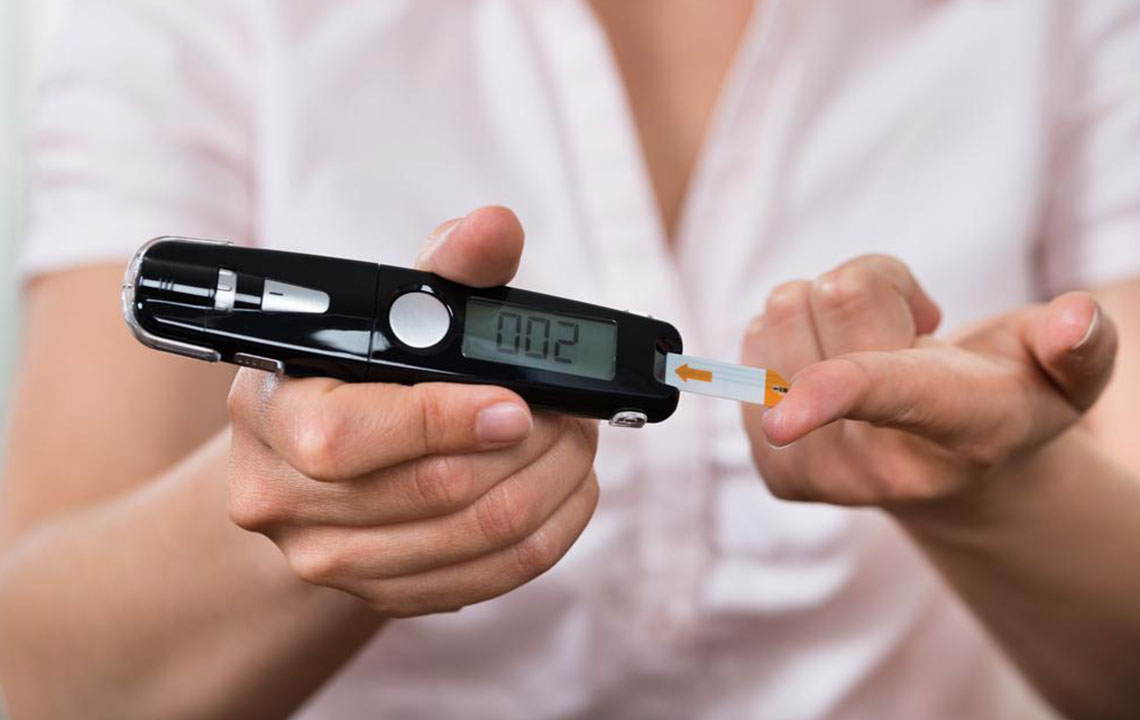Blood Sugar Level Ranges and How to Test Your Own Blood Sugar
The question “What are normal blood sugar levels?” is one of the most frequently asked medical queries around the world. This is because of the increasing number of abnormal sugar level cases worldwide. Therefore, the importance to know how to keep the blood sugar levels in the normal range is of utmost importance. Technically, sugar is used to describe sweet carbohydrates. Both blood sugar and blood glucose are interchangeable terms.

To answer “what are normal blood sugar levels,” we must remember that different countries and regions across the planet define blood sugar level by different standards. For instance, blood sugar is measured in millimoles per liter (mmol/L) in Canada and the United Kingdom while in the United States, the same thing is measured in milligrams per deciliter (mg/dL) of blood. It is interesting to note that the definition of normal blood sugar levels is distinct for diabetics and non-diabetics.
What are normal blood sugar levels?
The answer to the question as to what are normal blood sugar levels varies for the diabetic and non-diabetic populace. Normal blood sugar levels are a little different for diabetic and non-diabetic people.
There are two types of blood sugars:
- Fasting blood glucose level – A fasting blood glucose level less than 100 mg/dL is considered to be normal, whereas, the fasting blood glucose level ranging from 100 mg/dL to 125 mg/dL is considered to be prediabetes. The individual is diagnosed with diabetes if his fasting blood sugar level is more than 126 mg/dL.
- Postprandial blood glucose level -For non-diabetics, the range of 120-140 mg/dL is considered normal postprandial blood sugar range, while for diabetics, the normal postprandial blood sugar level range is 140-180 mg/dL.
The values defined above are average, which means the answer to the query “what are normal blood sugar levels” might vary from person to person. There might be some exceptions, but for others, value mentioned above is what normal blood sugar levels should be.
Abnormal blood sugar levels
The blood sugar levels that is less or more than the normal blood sugar levels are termed as abnormal blood sugar levels. In contrast to normal blood sugar level range, the abnormal sugar level range is divided into two classes – high and low. Both have their own medical complications and need to be dealt in a separate way.
Hyperglycemia also known as high blood sugar levels
Blood sugar levels that exceed the normal blood sugar levels are termed as high blood sugar levels. The condition is medically known as hyperglycemia.
Symptoms
- Blurred vision
- Fatigue
- Frequent need to urinate
- Headaches
- Increased thirst
- Trouble while concentrating
- Weight loss
Hyperglycemia is the trademark indication of diabetes. The condition is very frequent in diabetic people. The condition can be kept in check with regular medication, changes in diet and adding exercise to the daily routine.
Hypoglycemia also known as low blood sugar levels
Hypoglycemia is the medical condition of having low blood sugar levels than the normal blood sugar levels.
Symptoms
- Anxiety
- Confusion
- Dizziness
- Heart palpitations
- Mood swings
- Shakiness
- Skin tingling
- Sudden nervousness
Hypoglycemia is more threatening than hyperglycemia. This is because of the fact that body cells require the normal amount of blood sugar to operate correctly. In its scarcity, fatal outcomes can be expected. Hence, hypoglycemia needs to be treated as soon as the symptoms surface.
Testing blood sugar levels
It is good to have the knowledge of how to check blood sugar levels, in addition to understanding “what are normal blood sugar levels.” There are two means of doing so, and each of them is briefed up as follows:
Fingerstick blood test –Probably the easiest and quickest method to have blood sugar tested is fingerstick blood test. You need a glucose meter to accomplish the chore. Each time you need to run a fingerstick blood test, you’ll need a blood sugar test strip. It provides good information on blood sugar levels.
CGM– Continuous Glucose Monitor (CGMs) are widely used as a replacement for fingerstick blood test. The advantage is that they provide more accurate information about blood sugar levels and don’t necessitate for needle sticks. Compared to a single fingerstick blood test strip, these are expensive.
People who take rapid-acting or intermediate-acting insulin, blood sugar testing should be frequent. For people with Type 2 diabetes and those who are not on insulin can frequently take sugar tests before and after eating to monitor sugar levels. Moreover, frequent blood sugar testing lets you know what kind of foods and eatables you should have and which ones to avoid. While aiming for preparing a blood sugar log, you need to register all the blood sugar results to come up with an effective strategy to work your way up (or down) to the normal blood sugar level range.


